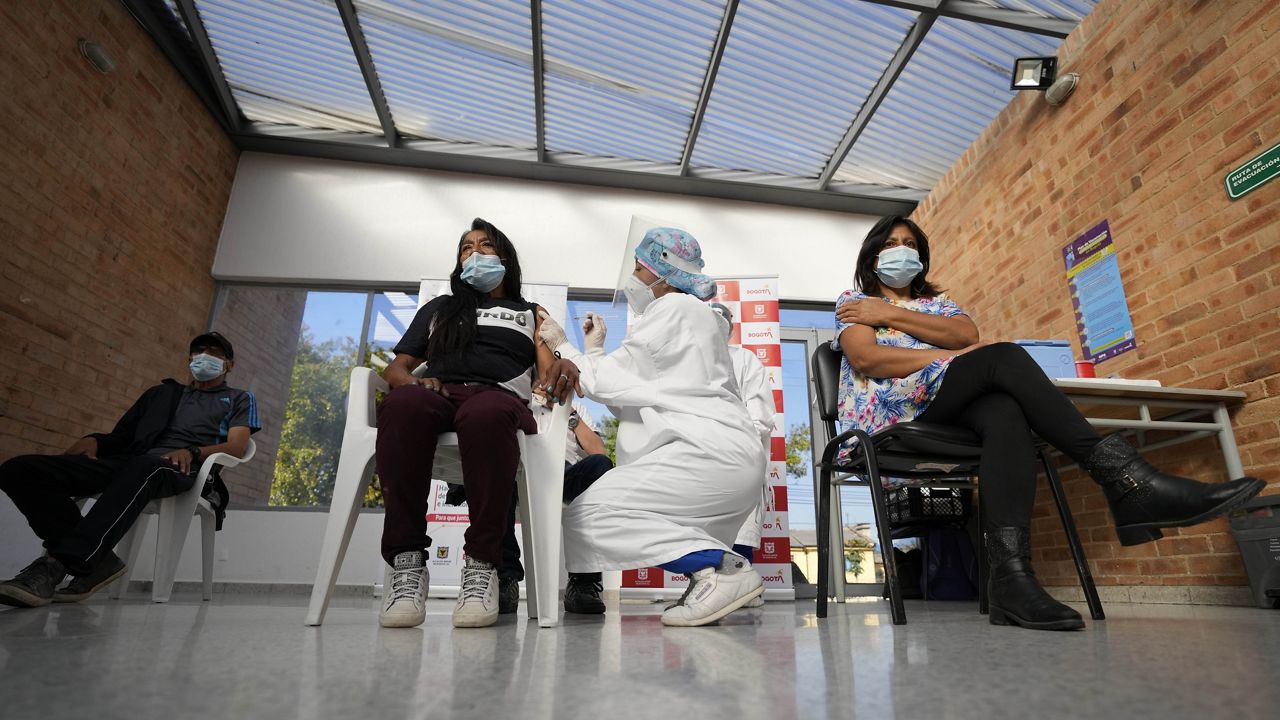The World Health Organization (WHO) added the “mu” coronavirus strain to its “Variants of Interest” list earlier this week.
While the WHO said that further research on the variant is needed to determine if it is more resistant to immunity from vaccination or previous infection, it has “mutations that indicate potential properties of immune escape.”
“Preliminary data presented to the Virus Evolution Working Group show a reduction in neutralization capacity of convalescent and vaccinee sera similar to that seen for the beta variant, but this needs to be confirmed by further studies,” the WHO wrote in a COVID-19 Weekly Epidemiological Update published on Tuesday.
The “mu” strain, also known as B.1.621, was first identified in Colombia in January, and has since been reported in parts of Europe and South America — though, according to the WHO, the prevalence of sequenced cases of the variant is below 0.1%.
“Although the global prevalence of the Mu variant among sequenced cases has declined and is currently below 0.1%, the prevalence in Colombia (39%) and Ecuador (13%) has consistently increased,” the WHO wrote.
“The reported prevalence should be interpreted with due consideration of sequencing capacities and timeliness of sharing of sequences, both of which vary between countries,” they continued. “More studies are required to understand the phenotypic and clinical characteristics of this variant.”
“The epidemiology of the Mu variant in South America, particularly with the co-circulation of the Delta variant, will be monitored for changes,” the WHO concluded.
A Variant of Interest, according to the WHO, is a variant of the coronavirus “with genetic changes that are predicted or known to affect virus characteristics such as transmissibility, disease severity, immune escape, diagnostic or therapeutic escape” while having significant community transmission.
Variants of Concern, on the other hand — like the delta, beta and gamma variants — meet the definition of a Variant of Interest, but also decrease the “effectiveness of public health and social measures or available diagnostics, vaccines, therapeutics,” increase “transmissibility or detrimental change in COVID-19 epidemiology” or increase “virulence or change in clinical disease presentation,” per the WHO.



